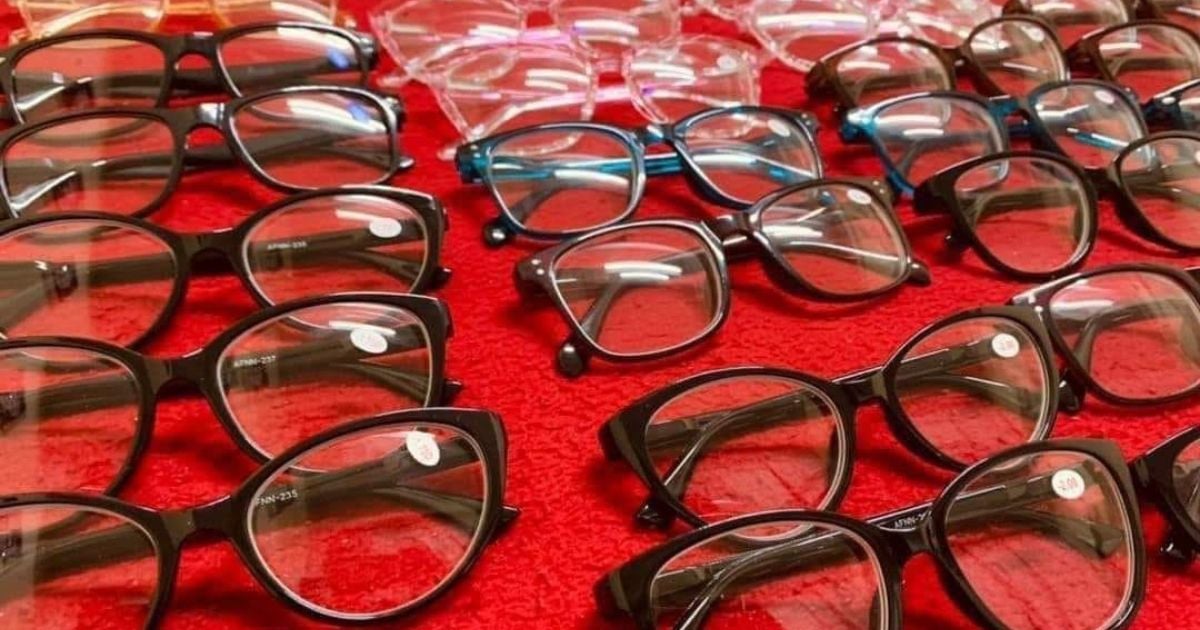
The crisis in the optical services in Ciego de Ávila, a result of government responsibility, has left the population without access to affordable glasses, forcing many to turn to the informal market, where prices reach exorbitant levels due to scarcity, the risks of operating outside the law, and the willingness of those in need to pay whatever it takes.
The official newspaper Invasor stated that this reality is a direct consequence of the dysfunction within the Pharmacy and Optics Company of Ciego de Ávila, which is unable to ensure the supply of basic materials or services.
The lack of raw materials and financing has brought the marketing of products such as cases or finished glasses to a standstill, leaving only repair services, which rely on parts provided by customers.
"We are at a complete standstill. We are waiting for solutions from the national level," stated the company's director, Dulce María Fernández Martínez, while describing the lack of immediate prospects for the 10 optical centers in the province.
This situation, which was already critical during the pandemic, has worsened to the point of forcing a mass exodus of staff. Many former employees are now taking on new roles, while the premises have been transformed into stores selling hygiene products, straying from their original purpose.
In this context, the informal market has taken center stage, with individuals assembling glasses to capitalize on the state deficit.
While these activities address urgent needs, they do so without guarantees for customers and at prices that are inaccessible for a large portion of the population, especially in a province that is predominantly elderly and has limited economic resources.
At the national level, decisions such as the prohibition against the management of opticians by micro, small, and medium-sized private enterprises, established in Decree 107/2024, have limited the possibilities for finding alternative solutions.
While provinces like Matanzas have established partnerships between state-owned companies and local development projects, such strategies have not been explored in Ciego de Ávila, condemning the population to depend on a collapsed state system, the official portal reported.
The question of why these facilities, which were once landmarks in the area, were not leased to private entities or restructured under more efficient models remains unanswered.
Meanwhile, the eye health of thousands of residents in Avila continues to be impacted by a system that is unable to provide basic services.
This situation not only exposes the lack of resources but also highlights the absence of willingness to implement viable alternatives in a context of widespread crisis in the country.
However, the critical situation of state-run optical services is not a recent issue nor is it limited to Ciego de Ávila. In 2023, the lack of supplies forced the optical shops in Santa Clara to focus solely on repairing old frames, worsening the plight of those in need of complete vision solutions.
That same year, a single mother from Santiago de Cuba reported that she had to turn to a private optical store, paying up to 3,000 pesos for the glasses her daughter needed due to their unavailability in the state network.
Frequently Asked Questions about the Crisis in the Optics Sector in Ciego de Ávila
Why don’t the optical shops in Ciego de Ávila have affordable glasses?
The crisis in the optical shops of Ciego de Ávila is due to the dysfunctionality of the Pharmaceutical and Optical Company of the province, which is unable to ensure the supply of basic materials or services. The lack of raw materials and financing has diminished the availability of products, leaving only repair services, which rely on parts provided by customers.
What measures has the Cuban government taken in response to the crisis in optical services?
Nationwide, the Cuban government has prohibited optical shops from being managed by micro, small, and medium-sized private enterprises, which limits alternative solutions. In Ciego de Ávila, strategies such as partnerships between state-owned companies and local development projects have not been explored, unlike in other provinces.
How does the optometry crisis affect the population of Ciego de Ávila?
The lack of access to affordable glasses forces many individuals to turn to the informal market, where prices are exorbitant. This situation particularly affects an aging population with limited financial resources, which urgently needs accessible visual solutions.
What alternatives does the population have in the absence of glasses at state optical stores?
Due to the lack of glasses in state optical shops, the population is turning to the informal market, where some individuals assemble glasses taking advantage of the state’s deficit. However, these activities do not provide guarantees for customers, and the prices are unaffordable for many.
Filed under: